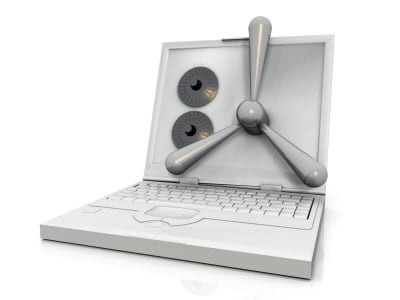It’s official: There is a war on private information. The world is full of people who feel their status is need to know with regards to your personal information. The paparazzi believe they need to know about everything that happens in the private lives of celebrities. The NSA believes they need to know about everything you do on your mobile phone. Advertisers believe they need to know every bit of information about anyone who might buy their product. You can’t buy a USB cable at Best Buy without them needing to know your phone number and zip code. And, of course, every government believes they need to know all of the secrets kept by big businesses.
It is easy to lay the blame at the feet of those who steel confidential information. But it seems there is enough blame to go around for those who devour every leaked corporate secret and stolen celebrity photo. We claim to be disgusted by the hacks. But we can’t wait to get our hands on the stolen information. We all believe that we have a right to know the information held on private networks. Now that businesses are being openly targeted, there has never been a better time to review your network security policies. If you find them wanting, here are three things you might want to consider for immediate implementation:
Outsource It to the People Who Are Good at It
If you find that you are not very good at network security, outsource the job to the people who are. Canada is known for companies that are good at networking and security. Nortel’s patents were worth billions. And while Blackberry is no longer a going concern in smartphones, they are still considered leaders in mobile security. Firewall Technical is another Canadian tech company that serves as an IT support system for Ottawa businesses.
You cannot afford to just wing it, or learn while on the job. Your business can be compromised in the blink of an eye, by threats you didn’t even know existed. If your security chops have already been found wanting, it may be time to outsource it to the experts.
Allow Personal Devices at the Office
Many companies will not allow their employees to bring their own personal laptop to work almost as a knee-jerk reaction. They reason that employees:
- Should be spending their time working, not checking email
- Will waste company bandwidth
- Might introduce viruses and malware
None of these objections track with the real world. The average worker already is using company resources to do their personal shopping, check their email, and introduce viruses and malware into the system. They are just doing it on the company’s computers. Allowing the use of personal computers actually reduces the threat because those activities are not taking place on the companies intranet and servers where the sensitive information is kept.
If an employee is going to check Facebook and Twitter, and they are, you want them to do it on their own system, not yours.
Use a Mobile Device Management Solution
If your company issues a company mobile, that will inevitably become a personal mobile. No one wants to carry two phones, and certainly not two laptops or tablets. Like it or not, that work number will be given out to family and friends as well as business contacts. Rather than try to reengineer human beings, you need to employ an MDM solution that allows business devices to have personal information. These solutions provide an impenetrable firewall between the two sets of information, making crossover virtually impossible.
Blackberry BES10 is still considered one of the best in the business. It works with all the major mobile operating systems. But there are many others from which to choose. Any of them are likely better than using no MDM solution.
Third-party IT departments, MDMs, and personal devices are available today. There is no excuse for poor network security. The war is on. It is past time you reinforce the wall.



















































 |
|
Comments 1